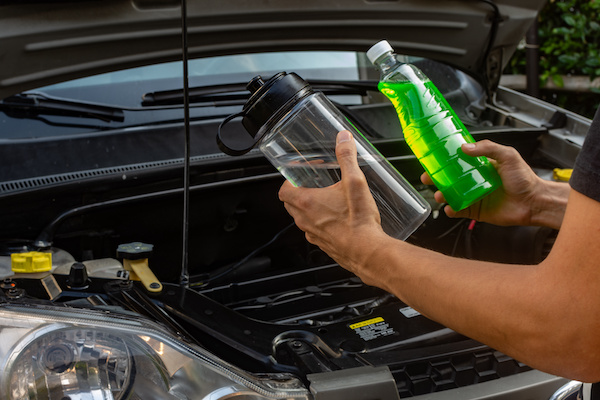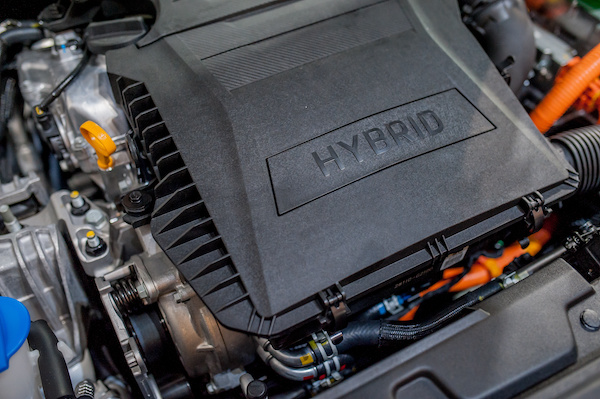Posted on 9/15/2022

Transmission fluid is responsible for keeping the transmission lubricated and at a stable temperature. Similar to oil changes for the engine, all vehicle owners should change their transmission fluid every once in a while. Is it done on a mileage basis? Should you monitor the fluid? How will you know when to get a transmission fluid flush? Read on to learn the answer to these questions. TRANSMISSION FLUID INTERVALS Although you don’t require transmission fluid service as often as oil changes, you should remain in the know on your transmission maintenance tasks. Transmission fluid can actually last anywhere from 30,000 to 100,000 miles, depending on your vehicle’s model, the type of transmission, and your driving demands. Typically, an automatic transmission will need fluid exchanges more often. MONITORING TRANSMISSION FLUID Transmission fluid exchanges keep the liquid in good condition so it can do an effective job at cleaning and conditioning the ... read more
Posted on 8/29/2022

The cooling system is in charge of keeping your engine at a stable temperature. Coolant fluid is pushed throughout the engine to draw excess heat away from the motor. Coolant, or the antifreeze mix, has chemical properties that prevent overheating and corrosion. Over time, your coolant may run low, which will cause your engine to run hotter than usual. In order to calm your engine down, you will need to top your vehicle off with coolant before bringing it to an auto repair shop for inspections. Normally, if coolant is low, it means there's a leak within the system. But what if you don't have coolant fluid on hand? Could you use water? Water is considered safe to use in place of coolant but only temporarily. After all, coolant is simply a 50/50 blend of water and antifreeze. The antifreeze is mixed in to raise the water's freezing and boiling points to withstand harsh conditions. We say it is a temporary solution because water has its drawbacks. &nbs ... read more
Posted on 7/25/2022

Shocks and struts are part of the suspension system of a vehicle. They serve two main functions: they provide a smooth and comfortable ride and they keep the wheels on the road at all times. Both shocks and struts combine a spring and a damping unit. An automotive coil spring has an uncompressed length, a static compressed length as the vehicle sits on the road, and changes in the spring length as the wheel hits bumps in the road. If the suspension system was just springs the car would bounce along as it hits bumps in the road. It would be uncomfortable and hard to control. A damper is a sealed cylinder with a rod that moves a piston up and down as the wheel moves up and down. The cylinder contains hydraulic fluid that is forced through holes and valves in the piston. These holes and valves are carefully designed to properly control the wheel's speed. The damper wears slowly as the miles pile up, and it can't control the wheel as well as new units. It's hard to tell if ne ... read more
Posted on 6/28/2022

When you have a diesel car, your number one priority when it comes to maintenance is to preserve its engine. Though you can follow all your diesel maintenance, issues can still occur. When your diesel automobile does intense work like pushing, pulling, or hauling, it can strain your diesel engine. Diesel engines require continuous maintenance. If you want your truck to last longer, please follow some of our diesel maintenance tips below: Replace fuel filters - Diesel goes through less refinement, and it tends to draw in moisture when sitting in the tank. Diesel engines tend to have two fuel filters, one to filter the fuel, and one to separate the water out. Don’t miss fuel cleanings - Just like how your fuel filters need to be clean, you should keep your fuel injectors and other fuel system parts clean too. If you want your engine to run for long, don’t miss your regular fuel injection service. Change your oil on time - Oil changes should be done more often when ... read more
Posted on 5/30/2022

Hybrid cars are becoming increasingly popular as consumers look for more fuel-efficient vehicles. A hybrid car is a vehicle that uses two or more different sources of power to move. The most common type of hybrid car uses an internal combustion engine (ICE) and an electric motor. The ICE in a hybrid car is similar to the engines used in conventional cars. It uses an internal combustion process, where fuel is mixed with air and ignited to generate power. The electric motor in a hybrid car takes on different functions, depending on how it is configured. For example, it can be used for acceleration or for regenerative braking, which allows energy to be recaptured and stored in batteries. Both the ICE and electric motor work together to power the car, resulting in increased fuel efficiency. In some cases, the electric motor may be used to power the car alone, at lower speeds or when starting from a stop. This can help to further improve fuel efficiency. The use of hybrid engines is not ... read more